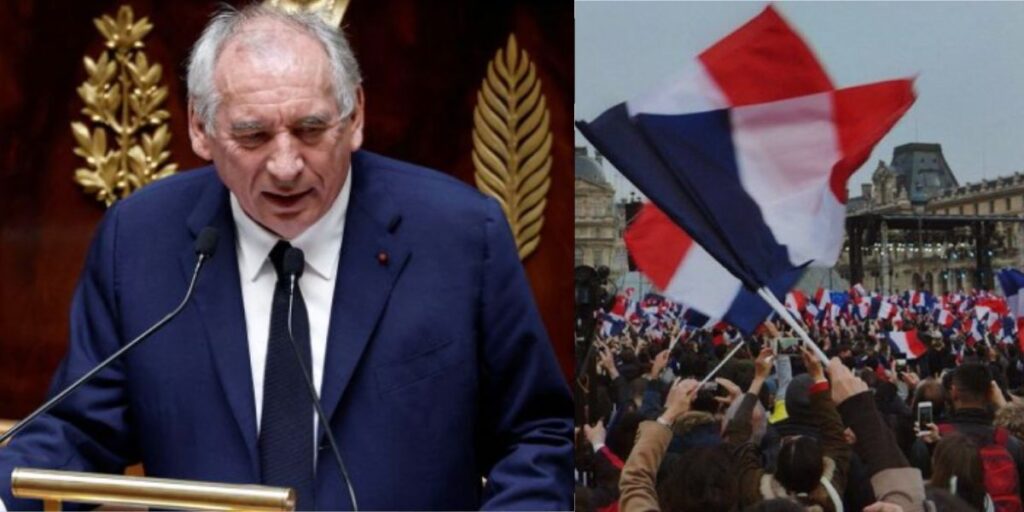When Prime Minister François Bayrou called a confidence vote on September 8, 2025, he unleashed the specter of a french government collapse that could reshape Europe’s political landscape. Ordinary citizens commuting to work, parents dropping kids at school, and small-business owners all felt the tremors of uncertainty. This isn’t just Beltway drama—it’s a real-life cliffhanger that could decide how France funds hospitals, schools, and pensions for years to come.
The Core News: Confidence Vote Day
On the day of reckoning, 577 deputies gathered in the National Assembly chamber beneath glittering chandeliers. Bayrou presented his austerity budget—slashing public spending by €20 billion, and dared opponents to bring him down. If 289 or more deputies vote “no,” the french government collapse becomes official, forcing immediate resignation and a scramble for new leadership.
Background: Why This Vote Matters
• France’s budget deficit stands at 4.5% of GDP, well above EU limits. • Rising interest rates have made debt service a growing burden. • Bayrou insists cuts are needed to restore fiscal credibility and ward off EU fines. • Opposition sees this as social engineering that punishes the most vulnerable.
A french government collapse would stall critical reforms on climate policy, pension age, and unemployment assistance—issues that affect every household from Rouen to Marseille.
The Austerity Showdown
Bayrou’s budget proposal calls for:
- Reducing civil servant pay by 2% across the board
- Trimming €5 billion from welfare spending
- Earmarking €10 billion for defense and infrastructure
Supporters argue these measures are a tough but necessary dose of fiscal medicine. Critics counter that slashing social services in a post-pandemic economy is political malpractice—and could trigger protests rivaling the Yellow Vest movement.
Political Stakes and Key Players
On one side stand:
- Prime Minister François Bayrou (centrist)
- President Emmanuel Macron (seeking stability)
- Pro-EU factions demanding fiscal discipline
On the other:
- Far-left coalition led by Jean-Luc Mélenchon
- National Rally under Marine Le Pen
- Disgruntled centrists angry over broken promises
This unlikely alliance of far-left and far-right deputies underscores just how fragile Bayrou’s majority has become—and how easily a french government collapse could materialize.
Potential Outcomes: From Survival to Collapse
- Bayrou wins: Government survives, austerity proceeds, markets cheer, protests subside.
- Bayrou loses narrowly: No-confidence triggers cabinet resignation; Macron must find a new prime minister.
- Bayrou loses decisively: Early elections loom, coalition fractures deepen, policy gridlock sets in.
Each scenario carries profound consequences for domestic policy, EU relations, and global markets eyeing the euro’s stability.
Implications for France and the EU

A french government collapse won’t just disrupt Paris. Brussels will watch nervously, fearing a repeat of the Italian debt crisis. Investors may demand higher yields on French bonds, and the euro could wobble against the dollar. For everyday citizens, a collapse could mean paused reforms, delayed infrastructure projects, and renewed social unrest.
Beyond markets, a collapse would create a leadership vacuum at a critical moment for EU decision-making. France plays a central role in shaping the EU’s climate agenda, defense cooperation, and digital regulations—areas already hung up in protracted negotiations. A caretaker government with limited mandate would struggle to commit France to long-term EU initiatives, delaying reforms from carbon border taxes to banking union measures. Meanwhile, Berlin and Brussels could face renewed calls to pick up the slack, intensifying Franco-German tensions and testing the cohesion of the European project. Read similar hot news and stay updated.
Public Reaction and Street Protests
In Lyon, union leaders have already threatened a nationwide strike if the budget cuts pass. Social media is alight with hashtags like #StopCuts and #FranceInPeril. Cafés in Montmartre buzz with heated debates as retirees worry about pension cuts and students fear rising tuition fees. The emotional stakes are as high on the streets as they are in the Assembly.
On the streets of Lyon and Paris, trade unions have mobilized strike warnings that could paralyze public transport, schools, and postal services. CGT and FO leaders have vowed rolling actions if pension and welfare cuts proceed, echoing the mass mobilizations of the 2018 Yellow Vest uprising.
Commuters face day-long metro shutdowns, while health-care workers threaten walkouts at regional hospitals, an explosive mix that risks amplifying public frustration over perceived political elitism. Cafés and bistros near government offices have already become impromptu debate forums, with citizens sharing live updates and organizing flash demonstrations via messaging apps.
Historical Parallels
This moment echoes past crises:
- 1992’s “Black Wednesday” when Britain left the ERM
- Italy’s 2011 debt crisis forcing Berlusconi’s exit
- Greece’s 2015 referendum on bailout terms
Each example shows how fiscal turmoil can trigger broader political earthquakes—sometimes toppling governments, sometimes sowing seeds for long-term reform.
What Happens Next?
If Bayrou loses:
- He tenders his resignation to President Macron.
- Macron convenes party leaders to propose a new prime minister.
- If no majority emerges, France heads to early elections within 60 days.
Throughout this process, public services continue—albeit under a caretaker government with limited powers. But policy innovation grinds to a halt until political stability returns.
Conclusion
Macron’s gamble on austerity has turned into a high-stakes showdown with the specter of a french government collapse looming large. Whether Bayrou survives or falls, the outcome will ripple through Europe’s financial markets and French society for months to come. Will this vote be remembered as the moment France chose fiscal discipline over political risk, or as the trigger for a deeper crisis? Only the Assembly holds the answer.
FAQs
Q1: What exactly is a confidence vote? A confidence vote asks legislators to affirm or withdraw support for the sitting government’s agenda. Losing such a vote forces the prime minister to resign or call elections.
Q2: What triggers a french government collapse? Failing to secure a majority in a confidence vote triggers the collapse. In this case, 289 “no” votes or more will end Bayrou’s administration.
Q3: Has France experienced a government collapse recently? While France has seen frequent cabinet reshuffles, a full collapse forcing early elections hasn’t occurred since 1995, when President Chirac dissolved the Assembly.
Q4: How likely is the french government collapse this time? Polling suggests a razor-thin margin. With both far-left and far-right united in opposition, analysts rate Bayrou’s survival as a 45% chance—making collapse more likely than usual.
Q5: What are the economic risks if the government falls? A collapse could spike bond yields, weaken the euro, delay budgetary reforms, and create uncertainty for businesses planning investments in France.



